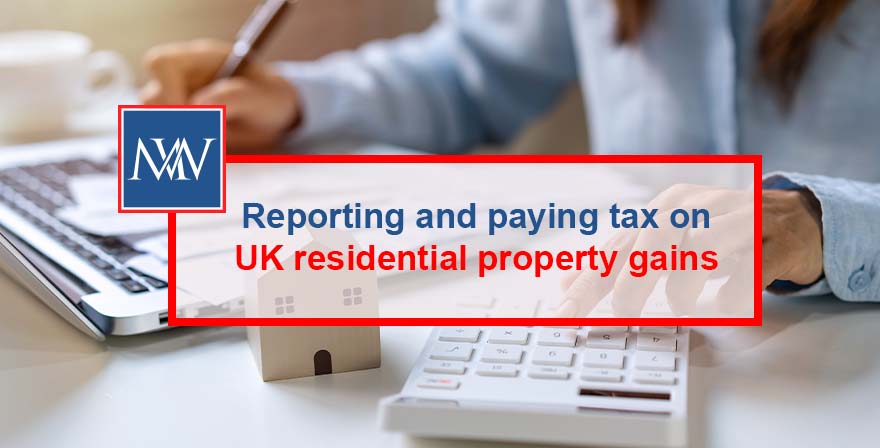
Reporting and paying tax on UK residential property gains
Where a chargeable gain arises in respect of a UK residential property, since April 2020, the gain must be reported to HMRC and a payment made on account of the associated tax liability. The good news is that taxpayers now have longer to tell HMRC about the gain and to pay the tax.
When might a liability arise?
A chargeable gain may arise on the sale of a residential property if that property has not been the owner’s only or main residence throughout the period that they have owned it. This may be the case where the property is an investment property, such as a buy-to-let or a holiday let, or where it is a second home, such as a holiday home or city flat.
If any gain resulting on the sale or disposal of the property is not offset by allowable losses or sheltered by the annual exempt amount, there will be capital gains tax to pay.
Reporting the gain
Residential property gains not covered by private residence relief must now be reported to HMRC. To do this, it is necessary to set up a Capital Gains Tax on UK property account on the Gov.uk website and use this to report the gain.
However, if the gain is reported on a self-assessment return before the end of the reporting window, the gain does not also need to be reported via the online service.
The time limit for reporting residential property gains was increased to 60 days of the date of completion where this took place on or after 27 October 2021. Where the sale completed between 6 April 2020 and 26 October 2021, the gains must be reported to HMRC within 30 days of the completion date. This creates the slightly anomalous result that a gain on a sale completing on 20 October 2021 must be reported before the gain on a sale completing on 30 October 2021.
A penalty of £100 is charged for a failure to report the gain within the reporting window.
Paying tax on account
A payment on account of the tax due on the gain must also be made to HMRC within the same time frame as that applying for reporting the gain – 60 days where completion is on or after 27 October and 30 days where completion is earlier.
The amount paid on account is the best estimate of the capital gains that is due at that point in time. To calculate the amount due, the following should be taken into account:
- the annual exempt amount (unless already used on a previous property gain in the same tax year);
- any losses realised prior to completion (unless already utilised on a previous capital gain); and
- the likely rate of tax – this will be 18% if total taxable income and gains for the year are less than the basic rate band and 28% to the extent they exceed this. The gain is treated as the top slice when working out which tax band it falls into.
Payment can be made online via the taxpayer’s Capital Gains Tax on UK property account. Interest is charged if the tax is not paid within the 30-day window.
The overall capital gains tax position for the tax year will depend on other disposals in the year. If other disposals are made in the year, the position is recalculated after the end of the year on the self-assessment return.
For more information, Book a Free Consultation
Need Accountancy Support?
For information on bespoke training, or if you have any other questions for Makesworth Accountant, please fill in your details below
















 151
151